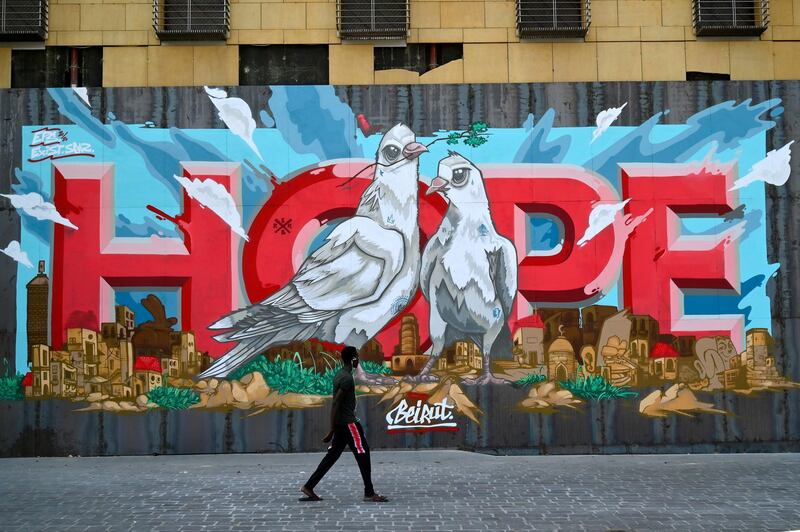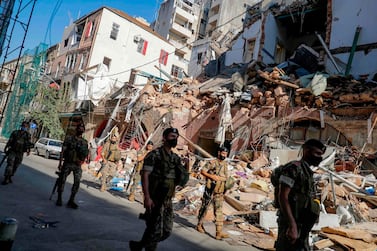Lebanon’s creditors may have to write off almost two-thirds of the value of their foreign currency debt and about 20 per cent of local currency borrowings, according to Citigroup.
One third of the haircuts – the difference between the value of the debt held and the amount that will be repaid – is likely to take place this year and two-thirds next year, Citigroup analyst Michel Nies said in a note to investors.
“These haircuts would also have to be accompanied by a renegotiation of the terms on the remaining debt in order to increase maturities, reduce coupons and introduce grace periods,” Mr Nies wrote in the note.
“In theory, a haircut on local currency debt would not even be necessary to avoid default, but we doubt that international creditors have appetite for (further) Modern Monetary Theory-style experiments,” Mr Nies said, referring to an economic theory that is more expansionary in its outlook than conventional government policies.
Lebanon is facing its worst economic crisis since its independence in 1943. A massive explosion on August 4 at Beirut port that left 190 people dead, 6,500 injured and reduced large parts of the city to rubble, has also compounded its economic woes.
The Institute of International Finance estimates that Lebanon’s economy will shrink 24 per cent this year. Even before the blast, gross domestic product had been forecast to contract 15 per cent, dragged down by a financial and political crisis that began in October last year.
The inflation rate in Lebanon, whose economy is also weighed down by hosting millions of Syrian refugees, rose to 112.4 per cent in July, compared with under 90 per cent in June, according to official data.
Lebanon has one of the highest debt-to-GDP ratios in the world, with its public debt climbing to $93.4 billion (Dh343bn) at the end of June.
The country defaulted on eurobonds worth $31bn in March, which led its currency – pegged to the US dollar at 1,507.5 pounds since 1997 – to lose more than 80 per cent of its value against the greenback in the black market. The default means that Lebanon is virtually cut off from international debt markets and cannot raise finances to support its economy.
A unification of exchange rates will eventually bring the inflation rate down, Mr Nies said. He sees an initial devaluation of the Lebanese pound to 4,300 per dollar and a further depreciation leading to the Lebanese pound’s exchange rate reaching 8,300 against the greenback by the end of 2024.
Mr Nies said he was reluctant to call his forecast a “base case”, adding that there is “no telling what the consequence of a severely adverse scenario would be like”.
The Lebanese government has turned to the International Monetary Fund for a $10bn bailout, but talks have stalled due to the fractious politics of the country.
Unlocking help from the IMF would be key to the initial stabilisation of Lebanon’s economy, Mr Nies said. He expects Beirut to reach a financing agreement with the IMF this year.








